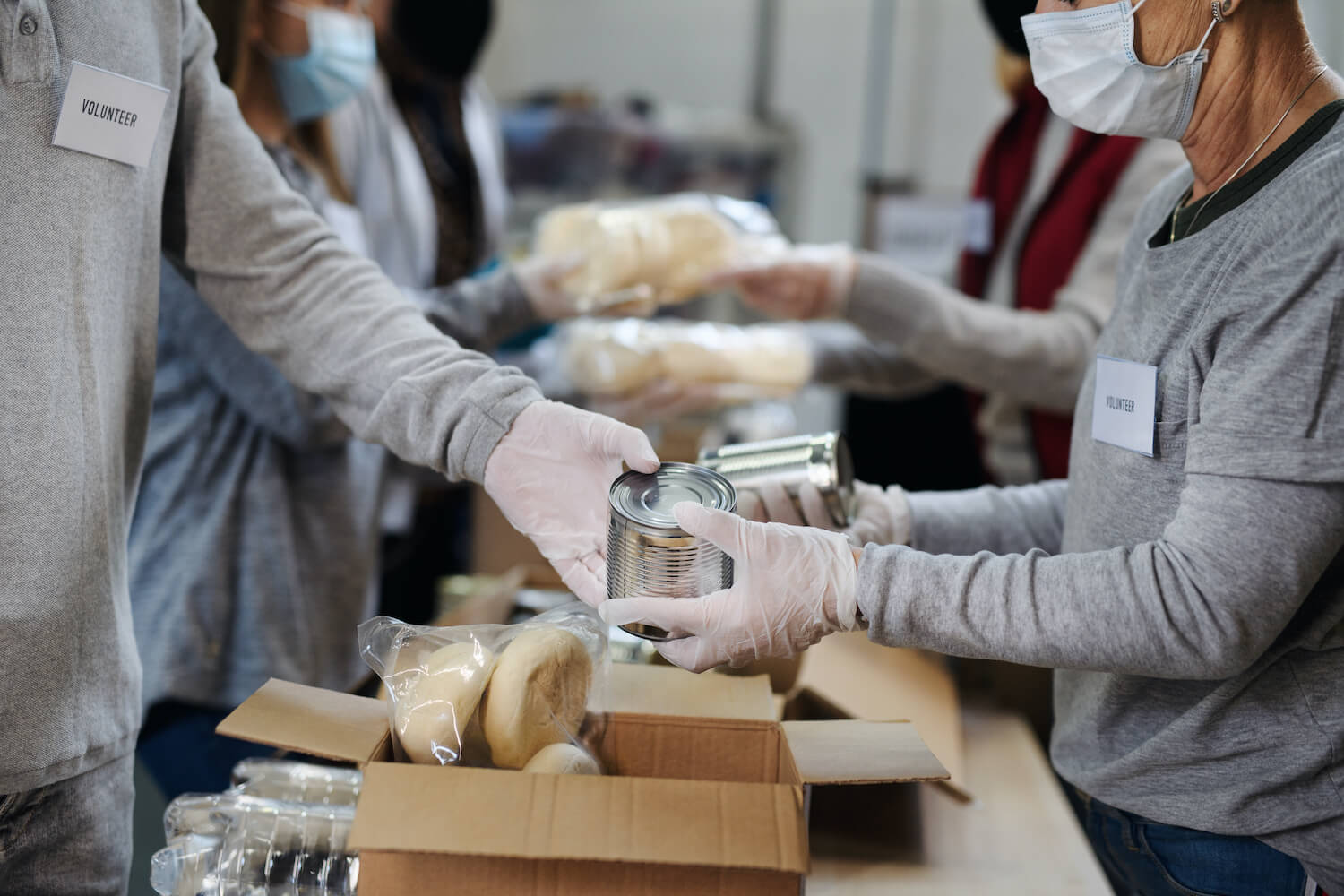If you’re a high school student with the drive to make a difference in the world, volunteering is a tremendous way to apply your passions and serve others. Beyond its social impact, volunteering is an essential component of any resume or college application. Volunteering often requires minimal experience, which means that motivated high school students possess the one requirement needed to be a great volunteer: enthusiasm! If you are interested in volunteering, check out these tips to find the right opportunity and be strategic with your volunteer commitments.
Which opportunity is right for you?
As you begin your volunteer search, take the time to consider which category of opportunities most aligns with your interests and passions. From social justice to voting advocacy to animal rights, there are countless ways to give back and support the causes that mean the most to you. At the same time, a key consideration in your search for opportunities should be your ‘hook’—the extracurricular and academic area(s) that anchor your extracurriculars, course selection, and academic and career goals. If your hook is environmental science and sustainability and you’re the president of your school’s Green Board, for example, you would make best use of your time volunteering with an organization like Greenpeace. Similarly, if democratizing access to the arts for marginalized communities is your hook and you spend your time starring in theatrical plays and a cappella groups at school, volunteering at an arts camp could be a good fit for you. If you’re having trouble narrowing down your opportunities in a way that helps you make the greatest impact, follow your most authentic passions and curiosity and see where they take you!
How to Find Volunteer Opportunities As a High School Student
Once you determine your area of focus, your next step will be to find the right volunteering opportunity that aligns with your interests. Begin by looking locally—this will provide you with the opportunity to support your own community, and you may be able to use your network of family and friends to identify and secure opportunities. Physical postings at community organizations (such as the YMCA, public parks, and messaging boards) or at religious establishments (churches, synagogues, mosques) can be a great starting place as you search. VolunteerMatch, JustServe, and Points of Light are popular databases with lots of opportunities to choose from that can be filtered based on location and type of work. Finally, check in with your teachers or school counselor, as they might be aware of after school programs or school partnerships with organizations in your town with which you can get involved.
Why High School Students Should Consider Volunteer Opportunities
Not only is volunteering a great way to grow as an individual and serve your community, but it’s also a fantastic way to meet requirements at your school and level up your resume and college applications. When it comes to including volunteer experiences in your resume and college applications, keep in mind that depth is better than breadth. Colleges and employers want to see consistent contributions over time rather than brief stints within multiple volunteer organizations. The ability to take on leadership roles after investing in an organization over time demonstrates your dedication to the organization’s mission, as well as the trust and respect that the leadership has for you in return.
KEY TIP
Be strategic and maximize your time and impact within one or two organizations. For example, volunteering at a summer camp over the course of a summer will allow you to accrue large quantities of hours in a short period of time and allow you to gain leadership experience working with younger campers.
Additionally, volunteer hours can count towards CAS requirements for IB students, which should be consistently logged throughout junior and senior year. Further, for students interested in pursuing the Congressional Award, one of the primary categories for the award is “Voluntary Public Service,” so consistent work volunteering with an organization for up to 24 months can qualify you to earn the Congressional Award Gold Medal.
Juggling School with Your Volunteer Opportunity
Another crucial priority for high school students is balancing scholastic work with volunteer commitments. If you find yourself stretched thin by your various responsibilities, the first strategy you can use is to separate the commitments by seasons during the year. For example, you can concentrate your volunteering responsibilities during the following times:
That being said, there are certainly benefits to integrating your volunteer commitment into your academic routine. Volunteering can actually help you gain perspective and remember the bigger picture amidst the stress of the school year. Practicing gratitude and giving back to your local community will prove just as fulfilling as the new relationships and bonds you will form with your fellow volunteers!
What should you do if you can’t find volunteer opportunities?
If you can’t seem to find the right opportunity by searching through local and online volunteer postings, you should create your own! There are many ways to make an impact in your community that don’t require you to work with an established organization. Collecting food, money, or clothing donations will allow you to make valuable contributions to those in need. If sustainability is your passion, find ways to improve your school or community’s ecological footprint by encouraging recycling or organizing cleanups in your town. Whatever your passion may be, you can take it to the next level and make a demonstrable impact just by being creative and working within your surroundings. Starting your own ventures is also a great way to demonstrate initiative and highlight the skills and values you would bring to campus at your dream school.
Volunteering won’t just bolster your college applications and demonstrate your dedication—it will also impart the joy of knowing that you have made a difference in your community! Giving back will grant you a chance to fine-tune your skills, meet new people, and explore your interests in a uniquely philanthropic context. Whether big or small, virtual or in-person, for the elderly or for puppies, make sure you start your search on ways to give back today!
Community Service on College Applications: Dos and Don’ts
Do:
Choose Meaningful Projects:
Focus on community service projects that align with your passions and values. Selecting activities that genuinely interest you will not only make the experience more fulfilling but also demonstrate your authentic commitment to your core passion.
Highlight Leadership and Initiative:
Showcase instances when you took on leadership roles or initiated projects. Colleges appreciate applicants who not only participate but also take the initiative to lead and drive positive change within their communities—this demonstrates the kind of student you will be on their campus should you enroll.
Quantify Your Impact:
Whenever possible, quantify the impact of your community service. Whether it’s the number of hours volunteered, funds raised, or people reached, providing concrete numbers adds substance to your achievements and tangibly shows the scale of your contributions.
Connect to Your Academic and Career Goals:
If your community service aligns with your academic or career aspirations, make those connections explicit. Explain how your experiences have shaped your goals and contributed to your personal and intellectual development.
Don’t:
Overinflate or Exaggerate:
Be truthful and genuine about your community service experiences. Avoid exaggerating your impact or inflating the number of hours. Authenticity is key, and admissions officers appreciate sincerity.
Focus Solely on Quantity:
While the number of hours matters, quality is equally important. Instead of focusing solely on accumulating hours, emphasize the depth of your involvement and the meaningful connections you’ve made through your community service.
“Voluntour”
Be mindful of the manner of your service and the organization(s) through which you are volunteering. Colleges do not look favorably on “voluntouring”—traveling to a non-Western country and engaging in saviorism packaged as charity. Make sure that you do your research about any organization you choose to volunteer with, paying attention to the cultural and social context of where and how you would be conducting volunteer work.
Ignore Reflection:
If you choose to write about your volunteer experience in your personal or supplemental essays, take the time to meaningfully reflect on your community service experiences. Briefly discuss what you’ve learned, how it has influenced you, and the skills you’ve gained. Reflection adds depth and shows a thoughtful approach to your contributions.
For more information about how to write about your volunteer experiences on your college applications, check out our Common App Activities List guide and our UC Activities List Guide! Bear in mind that you can also write about your volunteer experiences in your personal statement and in your supplemental essays, if applicable!
Frequently Asked Questions
How many volunteer hours should you have for college?
There is no specific number of volunteer hours that colleges universally require. Quality and impact are more important than quantity, so focus on meaningful experiences that align with your interests and showcase your commitment to community service.
How important are volunteer hours for college applications?
Volunteer hours can play a significant role in college applications. They provide evidence of your commitment to community service and leadership skills, as well as a willingness to contribute beyond academic pursuits. While not the sole factor, strong volunteer experiences can positively impact your application and demonstrate your engagement in making a difference.
What kind of volunteering looks good on college applications?
Volunteering that aligns with your interests, showcases your skills, and has a tangible impact can add value to your overall application profile. The key to successful volunteering is contributing your genuine passions to the well-being of your community.
Does volunteering count as work experience?
While volunteering is not the same as traditional paid work experience, it holds similar value on a college application as it shows how you choose to spend your free time. It demonstrates a commitment to service, teamwork, and community engagement. Admissions officers often appreciate the dedication and skills developed through volunteer work, considering it a valuable aspect of a student’s overall profile.




